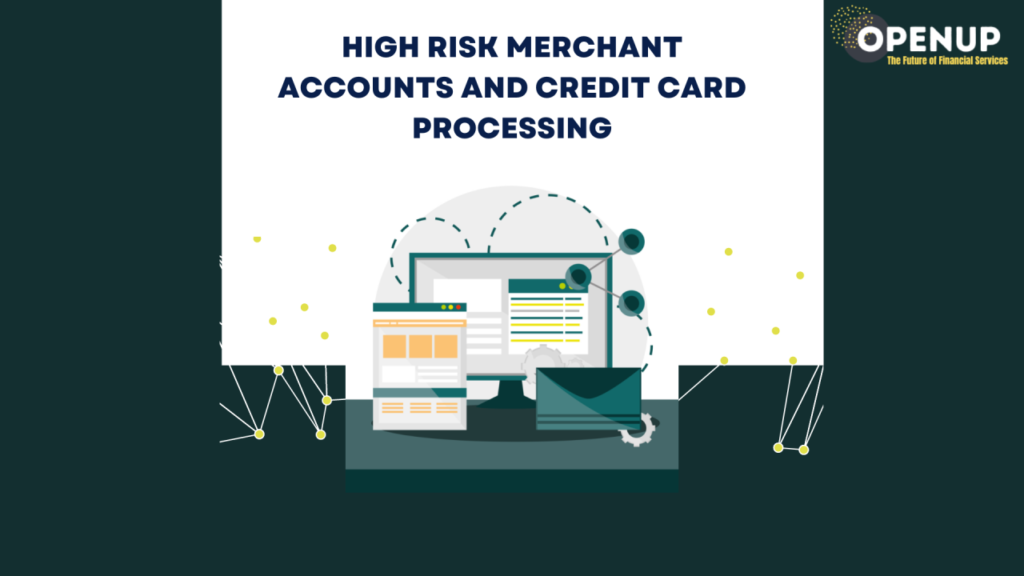AUTHOR : SARIKA PATHAK
DATE : 13 – 09 – 2023
In today’s digital age, e-commerce has witnessed an unprecedented boom. Businesses large and small are capitalizing on the convenience and global reach offered by online platforms. Enter the world of high-risk[1] merchant account processing – a niche but critical aspect of the e-commerce ecosystem. In this article, we will delve into what high-risk merchant[2]account processing entails, why it’s essential, and also how businesses can navigate this complex landscape.
Understanding High-Risk Merchant Accounts
What defines a high-risk business?
A high-risk business is one that operates in an industry or conducts transactions that are deemed riskier than average by payment processors[3]. This designation is primarily based on factors such as the industry’s susceptibility to chargebacks, fraud, and regulatory scrutiny. Common risky industries [4] include online gambling, adult entertainment, and pharmaceuticals.
Why do some businesses fall into this category?
Several reasons can land a business in the high-risk category[5]. It may be due to the potential for high chargeback rates, subscription-based models, or selling products or services in an industry with strict regulations. Additionally, businesses with a history of financial instability or bankruptcy may also be classified as high-risk.
Importance of High-Risk Merchant Accounts
The role of payment processing in e-commerce
Payment processing{1} is the backbone of any online business. It’s the mechanism that enables customers to make payments, and businesses to receive funds securely. For high-risk businesses, having a reliable payment processing solution is even more critical, as it directly impacts their ability to accept payments and operate smoothly.
Why high-risk businesses need specialized solutions
High-risk businesses {2}face unique challenges that necessitate specialized payment processing solutions. These challenges include higher instances of chargebacks and also the need to comply with stringent industry regulations. Standard payment processors may not be equipped to handle these complexities, making high-risk merchant accounts{3} a vital component of their operations.
Challenges Faced by High-Risk Merchants
Regulatory hurdles
Operating in high-risk industries often means navigating a maze of regulations. High-risk merchants must be vigilant about compliance to avoid legal troubles that can jeopardize their business operations.
Increased fraud risk
High-risk businesses are attractive targets for fraudsters. These businesses must implement robust fraud prevention measures to protect themselves and also their customers.
Chargeback issues
Chargebacks can be a significant headache for high-risk merchants{4}. Managing and also minimizing chargebacks is essential to maintain a healthy business.

Selecting the Right Payment Processor
Choosing the right payment processor[5] is a critical decision for high-risk businesses. Factors to consider include the processor’s experience in handling high-risk accounts, fees, contract terms, and the level of customer support provided.
Application Process for High-Risk Merchant Accounts
The application process for a high-risk merchant account can be more extensive than that of a standard account. High-risk merchants should be prepared to provide detailed documentation about their business, financial history, and also compliance measures.
Costs Associated with High-Risk Accounts
High-risk merchant accounts often come with higher fees due to the increased risk involved. However, businesses can take steps to minimize these costs and maximize their profits.
Managing Fraud and Chargebacks
Implementing fraud prevention measures and also having a strategy in place to handle chargebacks is crucial for high-risk merchants. Proactive steps can help protect the business’s bottom line.

Case Studies: Success Stories in High-Risk Processing
Real-world examples of businesses that have thrived in high-risk niches demonstrate that success is possible with the right approach to payment processing and also risk management.
The Future of High-Risk Merchant Account Processing
The landscape of high-risk merchant account processing is continually evolving. Businesses need to stay updated on technological advancements and also changing regulations to remain competitive.
Tips for Businesses in High-Risk Industries
Staying compliant with industry regulations and building trust with customers are key strategies for success in high-risk industries. By following best practices, businesses can thrive despite the challenges they face.
Conclusion
High-risk merchant account processing is a vital aspect of the e-commerce world that enables businesses in challenging industries to thrive. By understanding the unique challenges, selecting the right payment processor, and implementing effective risk management strategies, high-risk merchants can navigate this complex landscape successfully. As the industry continues to evolve, staying informed and also adaptable is key to long-term success.

FAQs
What industries are considered high-risk?
High-risk industries include but are not limited to online gambling, adult entertainment, pharmaceuticals, and subscription-based services.
How can I reduce chargeback rates?
Reducing chargeback rates involves implementing robust fraud prevention measures, providing excellent customer service, and resolving customer disputes promptly.
Is it possible to switch from a high-risk to a low-risk merchant account?
Yes, it’s possible, but it may require demonstrating improved financial stability and a track record of lower chargebacks.
What documents are required for a high-risk merchant account application?
Commonly required documents include business financial statements, bank statements, processing history, and information about the business’s owners.
Are high-risk merchant account fees tax-deductible?
In many cases, high-risk merchant account fees can be considered a business expense and may be tax-deductible. However, it’s advisable to consult with a tax professional for specific guidance.





